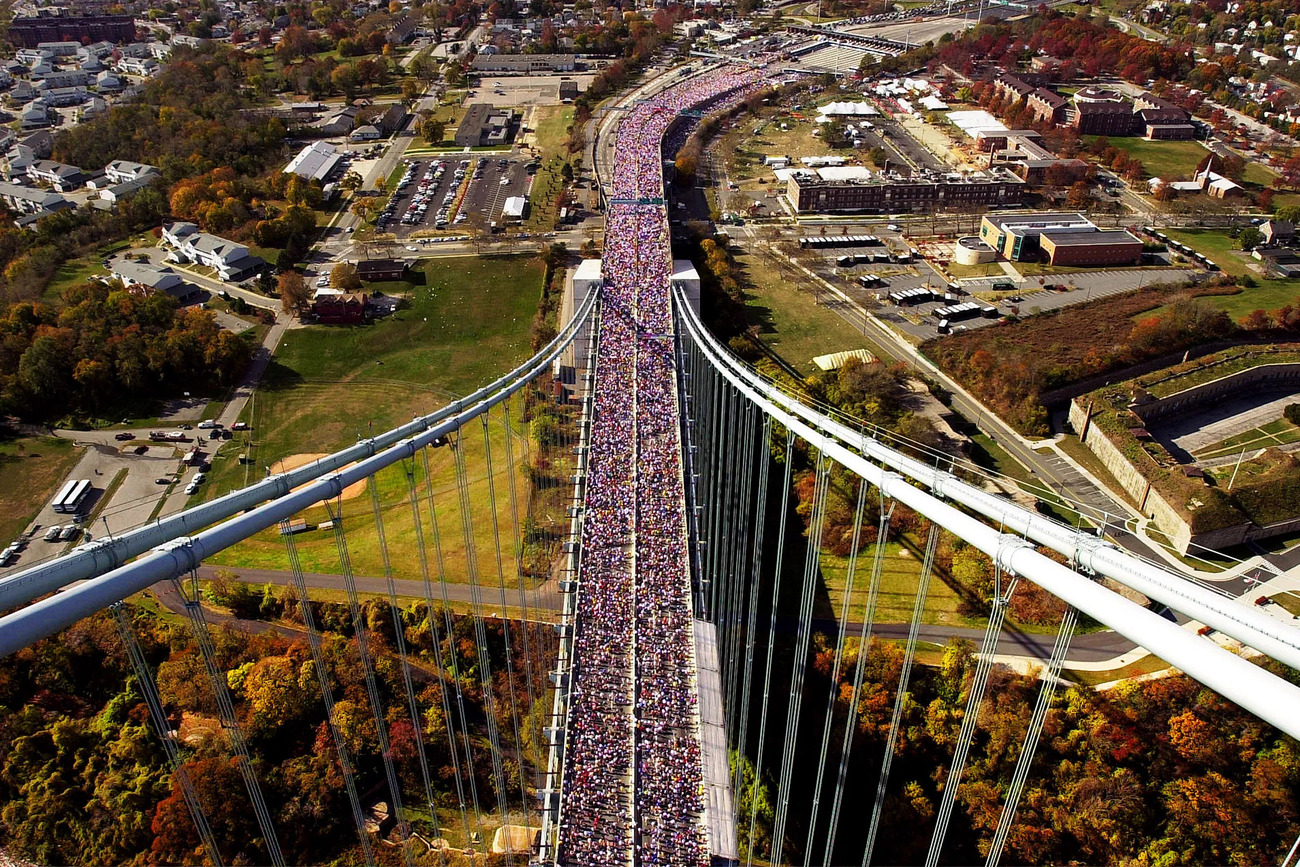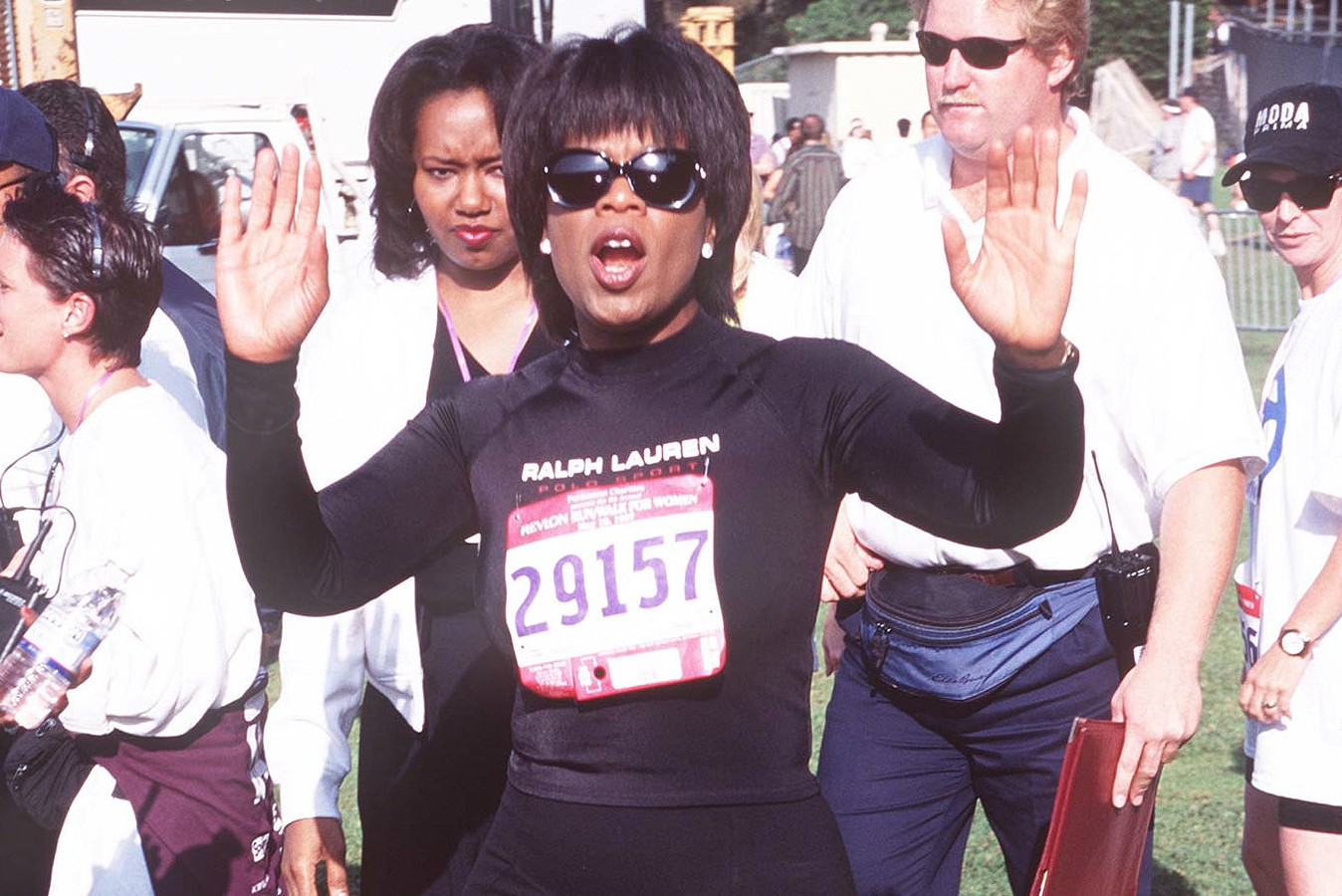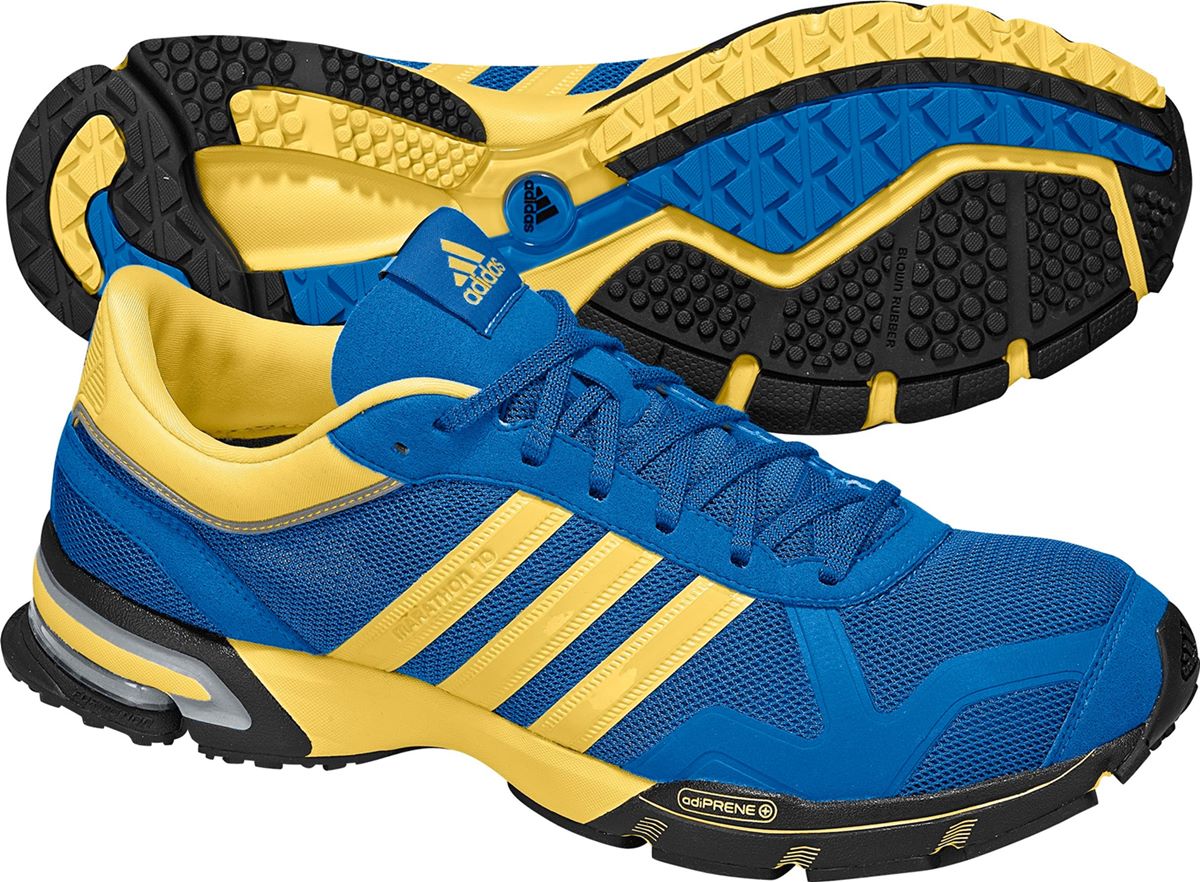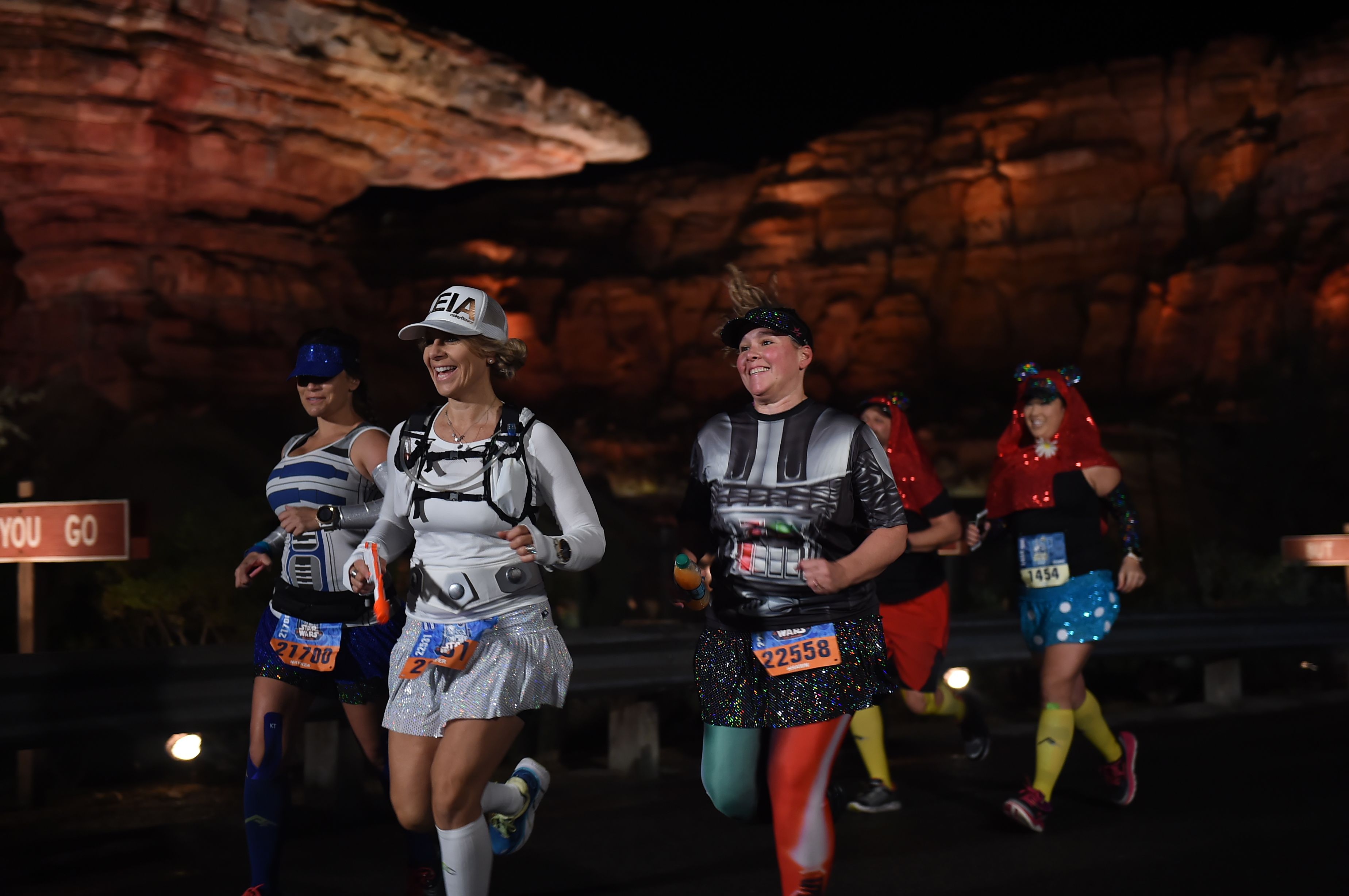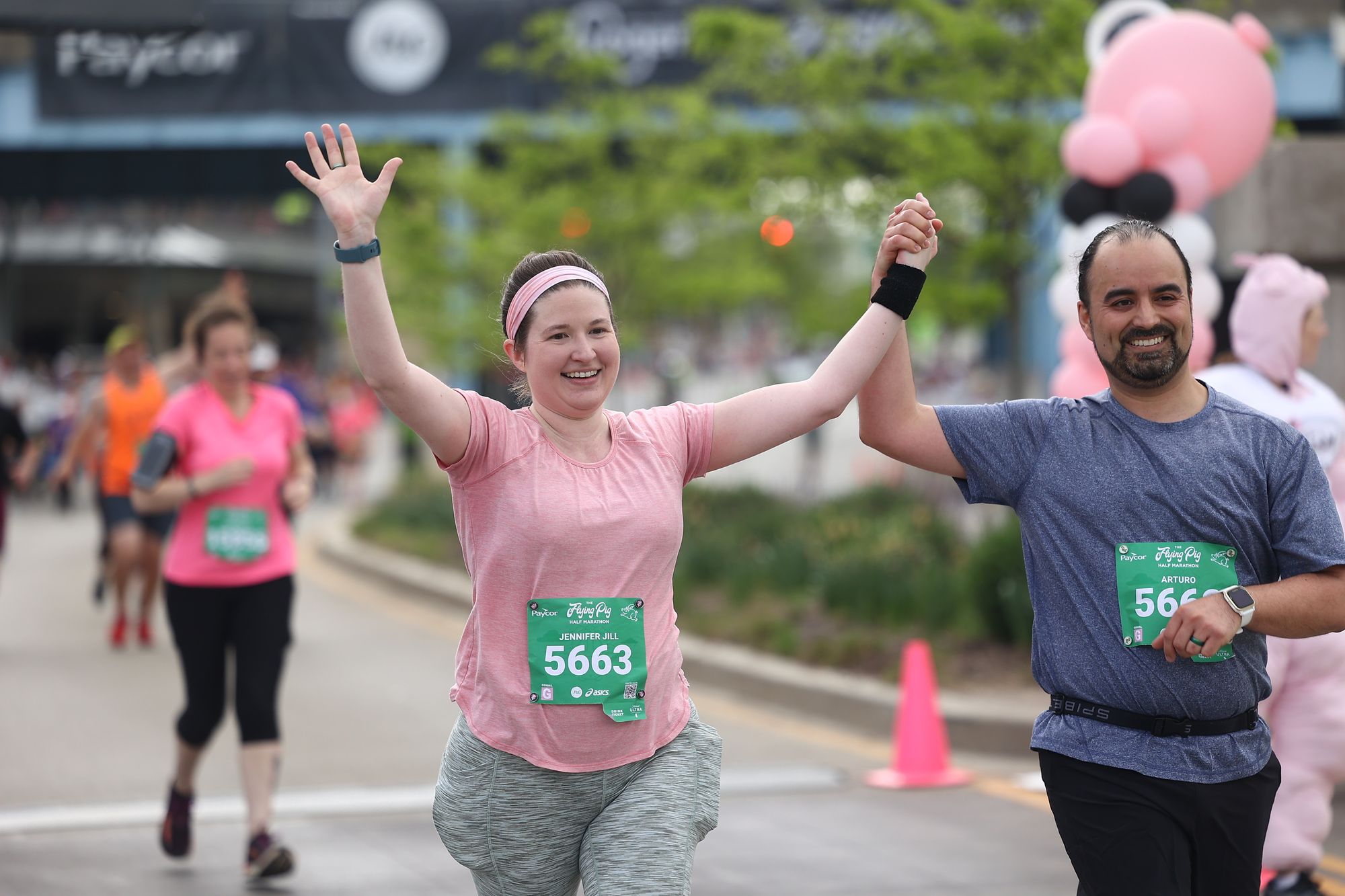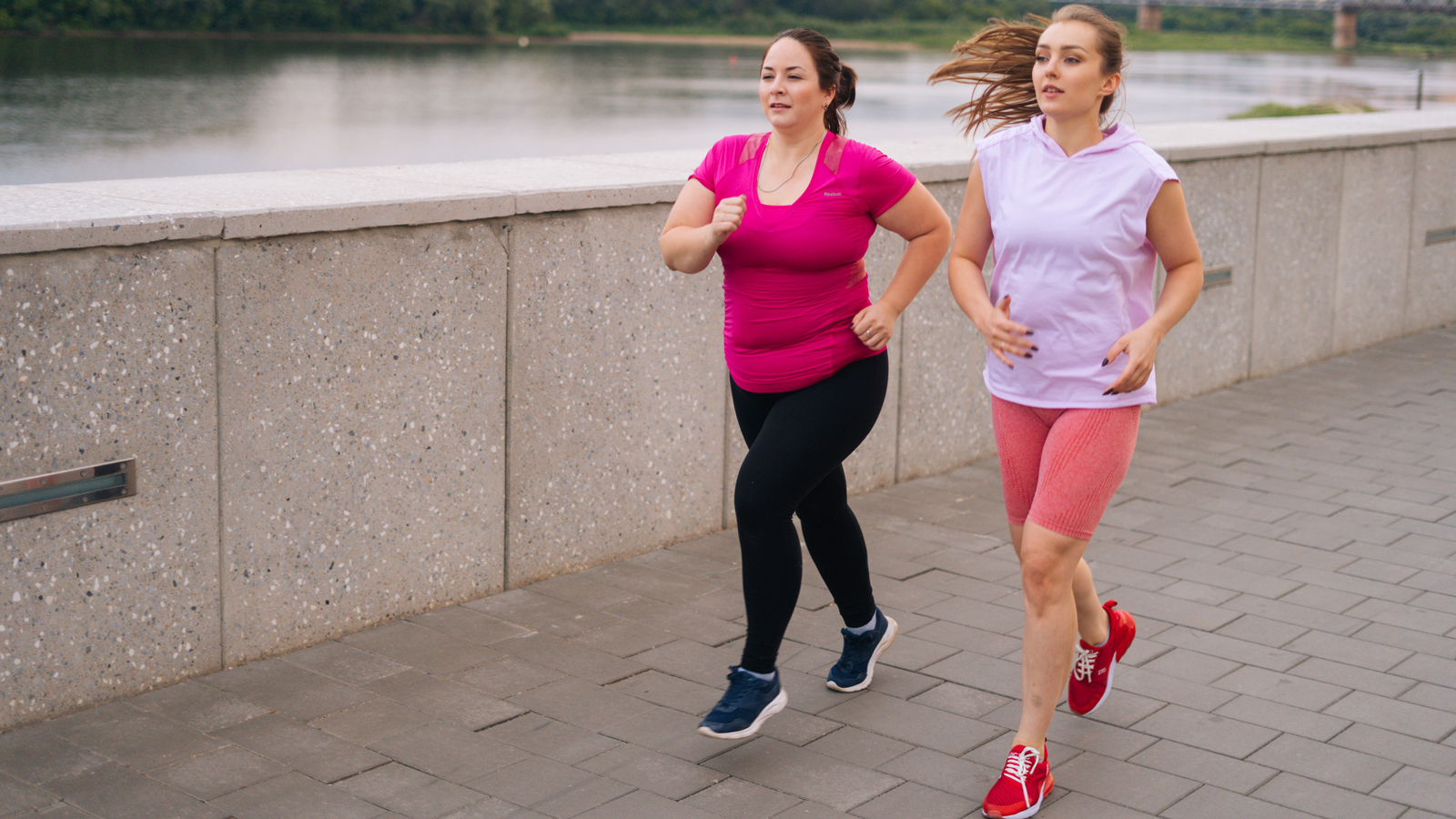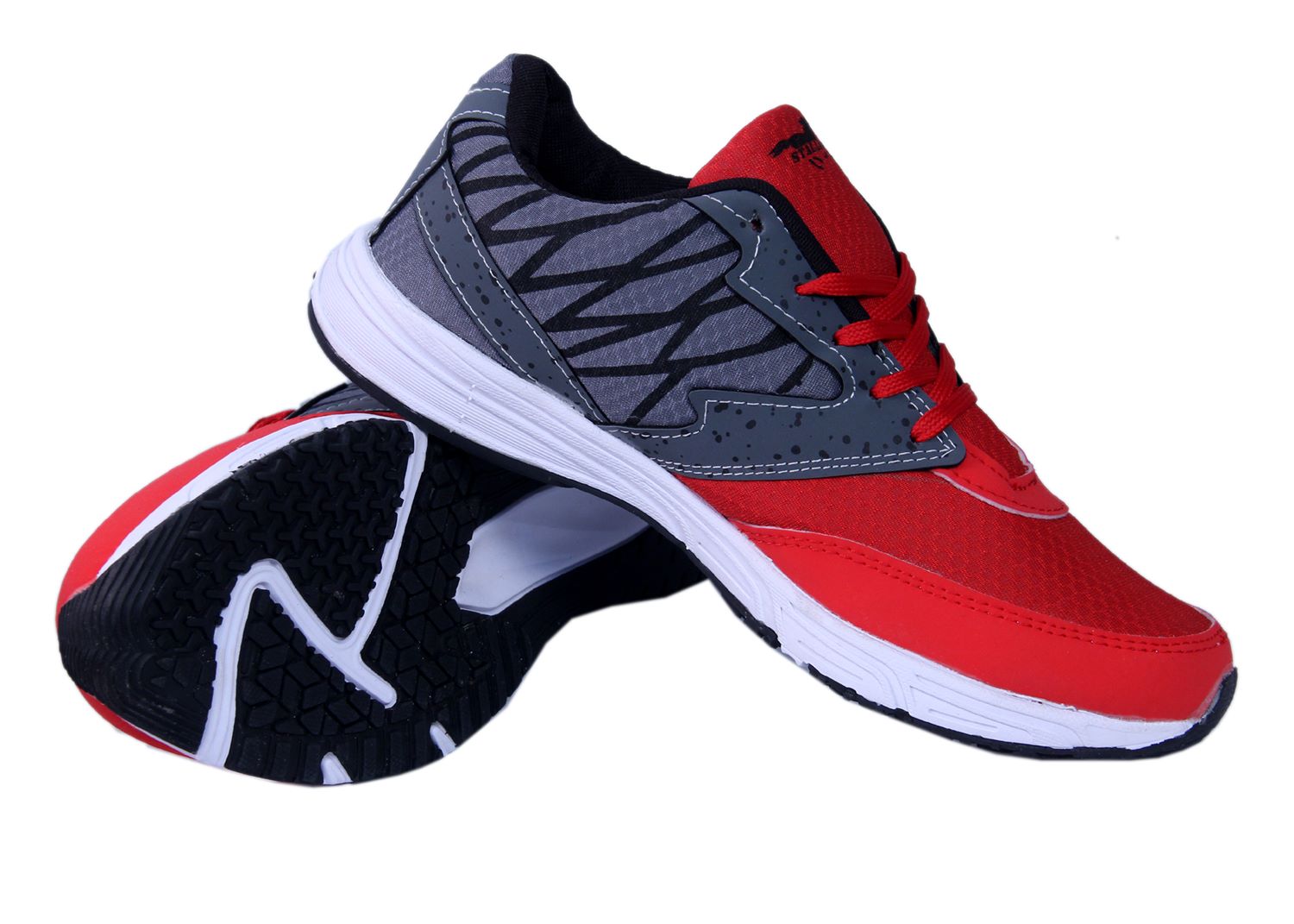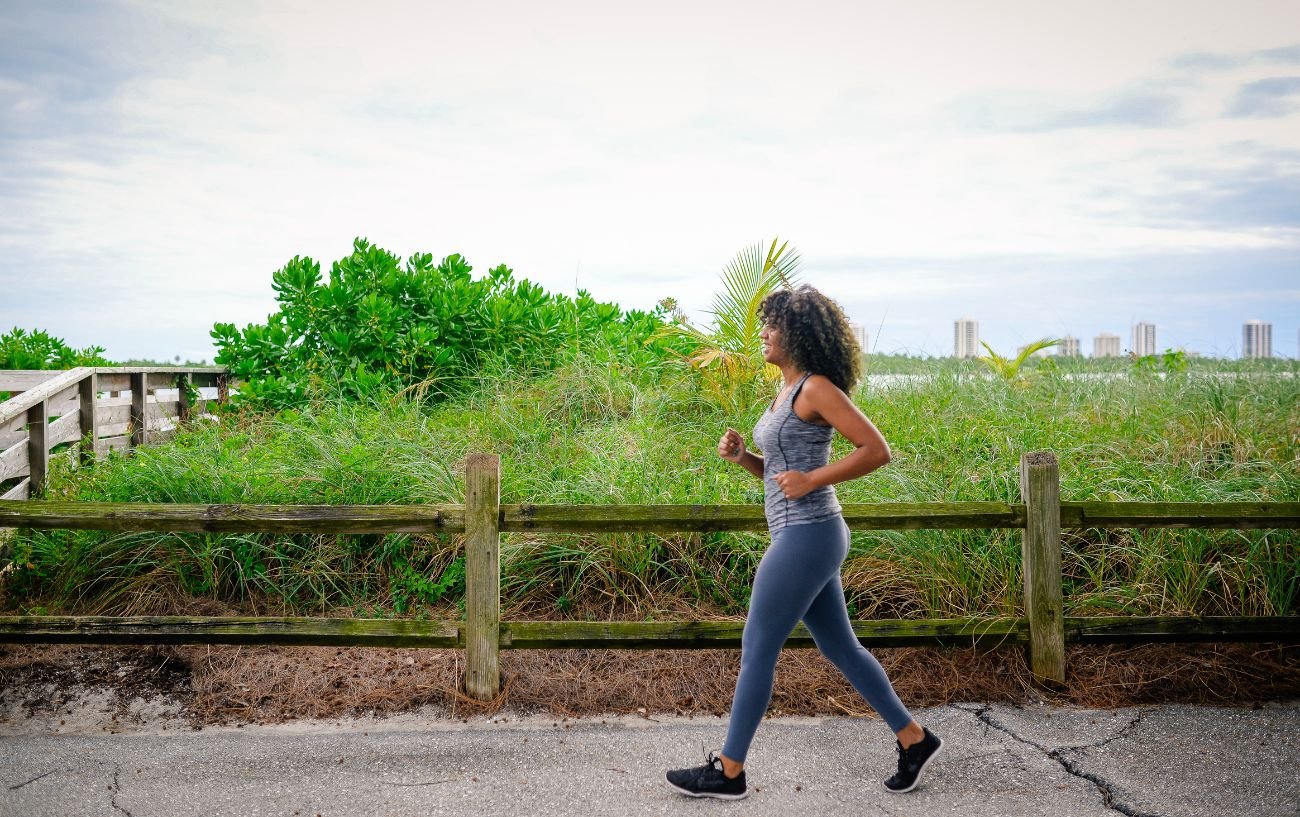

Featured
How Long Does It Take To Walk A Marathon
Modified: January 2, 2024
"Discover the average time it takes to walk a marathon in this featured article. Plan your walking strategy and achieve your marathon goals!"
Introduction
Walking a marathon is a feat of endurance and determination that many people aspire to achieve. Whether you’re a seasoned walker or a beginner looking to challenge yourself, completing a marathon on foot can be a rewarding and fulfilling experience. However, one of the most frequently asked questions is, “How long does it take to walk a marathon?”
The duration of a marathon walk depends on several factors, including the distance, pace, terrain, elevation, fitness level, and training. Understanding these factors can help you estimate the time it may take to complete a marathon on foot and plan your training and strategy accordingly.
In this article, we will delve into each of these factors and explore how they influence your walking time. We’ll also discuss the difference between walking and running a marathon and provide an average estimate for completing a marathon on foot. Additionally, we’ll share some strategies to help you improve your walking time and achieve your marathon goals.
So, if you’ve ever wondered about the time it takes to walk a marathon, strap on your walking shoes and join us as we journey through the various factors that contribute to your walking time and the tips and techniques to help you reach the finish line with confidence.
Factors that Influence Walking Time
When it comes to walking a marathon, several key factors can significantly impact your overall walking time. Understanding these factors can help you estimate the duration of your marathon walk and make effective plans. Let’s explore these factors in detail:
1. Distance and Pace: The distance of a marathon is 26.2 miles or 42.195 kilometers. The time it takes to walk a marathon depends on how fast or slow you walk. A brisk walking pace is typically around 15-20 minutes per mile (9-12 minutes per kilometer), while a leisurely pace can range from 20-25 minutes per mile (12-15 minutes per kilometer).
2. Terrain and Elevation: The terrain you encounter during your marathon walk can impact your walking time. Walking on flat, even surfaces, such as roads or tracks, is generally faster than walking on uneven terrain or trails with hills. Uphill sections will slow down your pace, while downhill stretches can increase your speed.
3. Fitness Level and Training: Your fitness level and training play a crucial role in determining your walking time. Regular walking and endurance training will increase your stamina and help you maintain a consistent pace throughout the marathon. The more physically fit you are, the faster you’ll be able to complete the marathon.
4. Walking vs. Running a Marathon: Walking a marathon typically takes longer than running one due to the difference in pace. However, walking can be a more accessible and low-impact option for individuals who may not be able to run or prefer a slower, steadier approach.
These factors interact with one another, and the optimal combination will vary from person to person. Understanding these influences will allow you to better estimate your walking time and plan accordingly. By considering these factors, you can set realistic goals and develop a training strategy that suits your abilities and preferences.
Distance and Pace
The distance of a marathon is a significant factor in determining the time required to walk it. A marathon consists of 26.2 miles or 42.195 kilometers, making it a substantial physical challenge for any walker.
The pace at which you walk greatly influences your overall walking time. A brisk walking pace typically ranges from 15 to 20 minutes per mile (9 to 12 minutes per kilometer). This pace is faster, requiring more effort and stamina to maintain. On the other hand, a leisurely pace is generally around 20 to 25 minutes per mile (12 to 15 minutes per kilometer). This pace allows for a more relaxed and comfortable walk, but it will extend the total time required to complete the marathon.
When estimating your walking time, it’s important to consider your own walking speed and endurance. Take into account your current fitness level and experience with long-distance walking. It’s also worth noting that your pace may vary during different parts of the marathon. It’s common for walkers to start off strong and gradually slow down as fatigue sets in. Pace fluctuations may be affected by factors such as terrain, weather conditions, and your overall physical condition.
Keep in mind that everyone walks at their own pace, so there’s no rigid standard for what is considered a “good” time to complete a marathon on foot. The most important thing is to set realistic goals based on your own abilities and comfort level.
If you’re new to marathon walking, it’s advisable to begin with a pace that feels comfortable and gradually increase your speed over time. This will help you avoid exhaustion and reduce the risk of injury. As you gain more experience and confidence, you can work on improving your pace and setting new personal records.
Remember, whether you walk a marathon in under five hours or take over six hours, the accomplishment lies in completing the distance and reaching the finish line. Walking a marathon is about the journey, the personal challenge, and the sense of achievement that comes with pushing your limits.
Terrain and Elevation
The terrain and elevation of the marathon route can significantly impact your walking time. Walking on different surfaces and dealing with various levels of elevation can add challenges and affect your pace.
Walking on flat, even surfaces such as roads or tracks generally allows for a smoother and faster walking experience. These surfaces provide a consistent footing, making it easier to maintain a steady pace throughout the marathon. In contrast, walking on uneven terrain, such as trails or rocky paths, can slow you down and require more concentration and effort. It’s important to adjust your pace and be mindful of your footing to prevent injuries.
In addition to terrain, the elevation of the route will also affect your walking time. Hills and inclines can be physically demanding and may require a slower pace. Walking uphill requires more effort and can quickly tire your muscles, while descending can provide some relief and increase your speed. It’s important to conserve energy when facing uphill sections and adjust your pace accordingly.
Before participating in a marathon, familiarize yourself with the route and its elevation profile. This will help you mentally prepare for any challenging terrain and strategize your pace accordingly. Consider practicing on similar types of terrain during your training to build strength and confidence.
If the marathon route includes significant elevation changes, such as steep hills or mountains, it’s advisable to incorporate hill training into your preparation. This involves actively training on inclines to build strength and endurance, allowing you to tackle the elevation changes more effectively during the marathon.
Remember, the terrain and elevation of a marathon can add excitement and variety to your walking experience but may also pose additional challenges. Adjusting your pace, focusing on your footing, and mentally preparing for the course will contribute to a more successful and enjoyable marathon walk.
Fitness Level and Training
Your fitness level and training regimen play a crucial role in determining your walking time for a marathon. The more physically fit you are, the better equipped you’ll be to tackle the challenges of the distance and maintain a consistent pace throughout the race.
When it comes to marathon walking, training is key. Consistent and structured training allows you to build endurance, improve your walking technique, and strengthen the muscles necessary for long-distance walking. The duration and intensity of your training sessions will depend on your current fitness level, goals, and time commitment.
For beginners or those new to marathon walking, it’s crucial to start with a solid foundation of cardiovascular fitness. Incorporating regular walks into your routine and gradually increasing the duration and intensity will help prepare your body for the demands of a marathon. Consider consulting with a professional trainer or coach to develop a personalized training plan tailored to your needs and abilities.
In addition to cardiovascular fitness, strength training is also vital for marathon walkers. Strengthening the muscles in your legs, core, and upper body can improve your overall endurance and help you maintain good posture and form throughout the race. Including exercises such as squats, lunges, planks, and resistance training will benefit your walking performance and reduce the risk of injuries.
As your training progresses, it’s important to gradually increase the distance of your walks to acclimate your body to the demands of a marathon. Aiming for longer walks, including back-to-back walks on consecutive days, will help build your stamina and confidence.
During your training, listen to your body and give yourself adequate rest and recovery time. Overtraining can lead to fatigue, injuries, and decreased performance. Incorporate rest days into your training plan and prioritize sleep and proper nutrition to support your overall well-being and recovery.
Remember, your fitness level is unique to you, and completing a marathon is a personal achievement. Set realistic goals based on your current abilities and don’t compare yourself to others. Celebrate your progress and focus on improving your own performance rather than trying to meet external expectations.
By consistently training and gradually increasing your fitness level, you can improve your walking time and enhance your overall marathon experience. Stay dedicated, trust the process, and enjoy the journey towards reaching your marathon walking goals.
Walking vs. Running a Marathon
When it comes to participating in a marathon, there is often a debate between walking and running. Both walking and running a marathon have their own unique benefits and considerations that can influence your choice and the time it takes to complete the race.
Walking a marathon is a popular choice for those who prefer a slower, more relaxed pace. It provides a lower-impact option than running, which can be gentler on the joints and muscles. Walking is accessible to individuals of various fitness levels and can be a great way to challenge yourself and achieve a significant physical accomplishment.
On the other hand, running a marathon typically involves a faster pace, a higher level of intensity, and a greater cardiovascular demand. Running allows you to cover the distance more quickly, potentially leading to a shorter overall time to complete the marathon. However, running may require more training and can be more physically demanding, especially for those new to long-distance running.
While running generally allows for a quicker completion time, it’s important to assess your personal abilities and preferences. If you are not an experienced runner or have concerns about the impact on your body, walking a marathon might be a more suitable choice. Walking still provides a challenging and fulfilling experience, allowing you to enjoy the surroundings and connect with other participants along the way.
Regardless of whether you choose to walk or run, participating in a marathon is an achievement in itself. The level of effort and dedication required for training and completing a marathon is commendable, regardless of the time it takes.
It’s worth noting that some marathon events have specific time limits for completion. If you are considering walking a marathon, be sure to check the guidelines or requirements set by the event organizers to ensure you will be able to finish within the designated time. Plan your training accordingly to ensure that you can maintain a pace that aligns with the time limits.
Ultimately, whether you choose to walk or run a marathon, the journey towards completing the marathon is a personal one. Embrace the experience, set realistic goals, and enjoy the sense of accomplishment that comes with challenging yourself and crossing the finish line.
Average Time to Walk a Marathon
The average time it takes to walk a marathon can vary depending on several factors, including individual fitness levels, walking pace, and the difficulty of the course. While there is no definitive answer, we can provide a general estimate based on typical marathon walking times.
On average, it can take anywhere from 6 to 8 hours to walk a marathon. This estimate includes the time spent walking the full distance of 26.2 miles or 42.195 kilometers. Keep in mind that this is a rough average and individual times can vary significantly.
It’s important to consider that walking a marathon is not a race against the clock for everyone. Many participants choose to walk a marathon for personal achievements, to raise awareness for a cause, or simply to enjoy the experience of being part of an organized event. The emphasis is often on completing the distance rather than meeting a specific time goal.
It’s essential to set realistic expectations and not compare your walking time to those of well-trained athletes or experienced marathon runners. Walking a marathon is a personal journey, and the true accomplishment lies in crossing the finish line, regardless of the time it takes to get there.
If you’re interested in improving your walking time and aiming for a faster completion, consistent training, and conditioning are key. Gradually increasing your walking distance, incorporating speed work, and focusing on strength and endurance training can help you improve your overall walking performance.
Another factor to consider is the specific marathon event you plan to participate in. Different marathons have varying course difficulties, terrain, and time limits. Be sure to review the event guidelines and course information to get a better understanding of the time allowances for walkers.
Don’t let the average or expected time to walk a marathon discourage you. Every participant brings their unique circumstances, goals, and abilities to the event. Focus on your own progress, celebrate your achievements, and enjoy the journey towards completing a marathon at your own pace.
Strategies for a Faster Walking Time
If you’re aiming to improve your walking time and complete a marathon at a faster pace, there are effective strategies you can employ to optimize your training and performance. Here are some tips to help you achieve a faster walking time:
1. Interval Training: Incorporate interval training into your workouts to improve your speed and endurance. Alternate between periods of faster, more intense walking and slower recovery walks. This training method helps to increase your overall pace and build stamina.
2. Strength Training: Regular strength training exercises focusing on your legs, core, and upper body can enhance your overall walking performance. Stronger muscles help to maintain a consistent stride and reduce fatigue during long-distance walks.
3. Proper Form and Technique: Pay attention to your walking technique and posture. Maintain a tall posture with your head up, shoulders relaxed, and arms swinging naturally. Engage your core muscles and take purposeful strides, pushing off from your toes. Good form allows for more efficient movement and can contribute to a quicker walking time.
4. Incremental Increases: Gradually increase your training distance and pace over time. Pushing yourself too hard too soon can lead to injuries or burnout. Aim for incremental improvements by setting small distance or time goals that are realistic and achievable.
5. Nutrition and Hydration: Proper fueling and hydration are essential for maintaining energy levels and endurance during a marathon. Prioritize a balanced diet and stay hydrated both during your training sessions and on marathon day to optimize your performance.
6. Practice Race-Day Strategies: Familiarize yourself with the course layout and plan your strategy accordingly. Walk sections of the course during your training to get a sense of the terrain and any potential challenges. Develop a pacing plan to ensure you maintain a consistent and sustainable pace throughout the marathon.
7. Mental Preparation: Prepare yourself mentally for the challenge ahead. Visualize yourself crossing the finish line, overcome doubts and negative thoughts, and focus on staying positive and motivated. Develop strategies to stay mentally engaged during the marathon, such as setting smaller goals along the way.
Remember, improving your walking time takes time, patience, and consistent training. Be realistic with your goals and celebrate every improvement along the way. Enjoy the process and embrace the sense of achievement that comes with surpassing your personal best and completing a marathon at a faster walking time.
Conclusion
Walking a marathon is a challenging and rewarding endeavor that requires proper preparation, determination, and perseverance. The time it takes to walk a marathon can vary depending on various factors such as distance, pace, terrain, elevation, fitness level, and training. It’s important to set realistic goals based on your own abilities and preferences.
Factors like distance and pace play a significant role in determining your walking time. The average time to walk a marathon falls between 6 to 8 hours, but individual times can vary. It’s crucial to focus on your personal progress and not compare yourself to others.
The terrain and elevation of the marathon route also influence your walking time. Walking on flat, even surfaces allows for a faster pace, while uphill sections may slow you down. Incorporating strength training and practicing on different terrains can help improve your performance.
Your fitness level and training regimen are crucial in determining your walking time. Regular training, gradual increases in distance, and strength exercises contribute to enhanced endurance and overall performance. Remember, completing a marathon is an accomplishment regardless of the time it takes.
Choosing to walk or run a marathon is a personal decision, and both have their own merits. Walking provides a more accessible and low-impact option, while running offers the potential for a quicker completion time. Ultimately, what matters is your enjoyment and satisfaction in completing the marathon.
By employing strategies such as interval training, strength training, maintaining proper form, and setting incremental goals, you can improve your walking time and enhance your overall performance. Focus on your journey, celebrate your progress, and enjoy the sense of accomplishment that comes with completing a marathon at your own pace.
Remember, walking a marathon is not simply about reaching the finish line – it’s about the personal growth, determination, and resilience that you cultivate along the way. So, lace up your shoes, take that first step, and embark on the incredible journey of walking a marathon.
